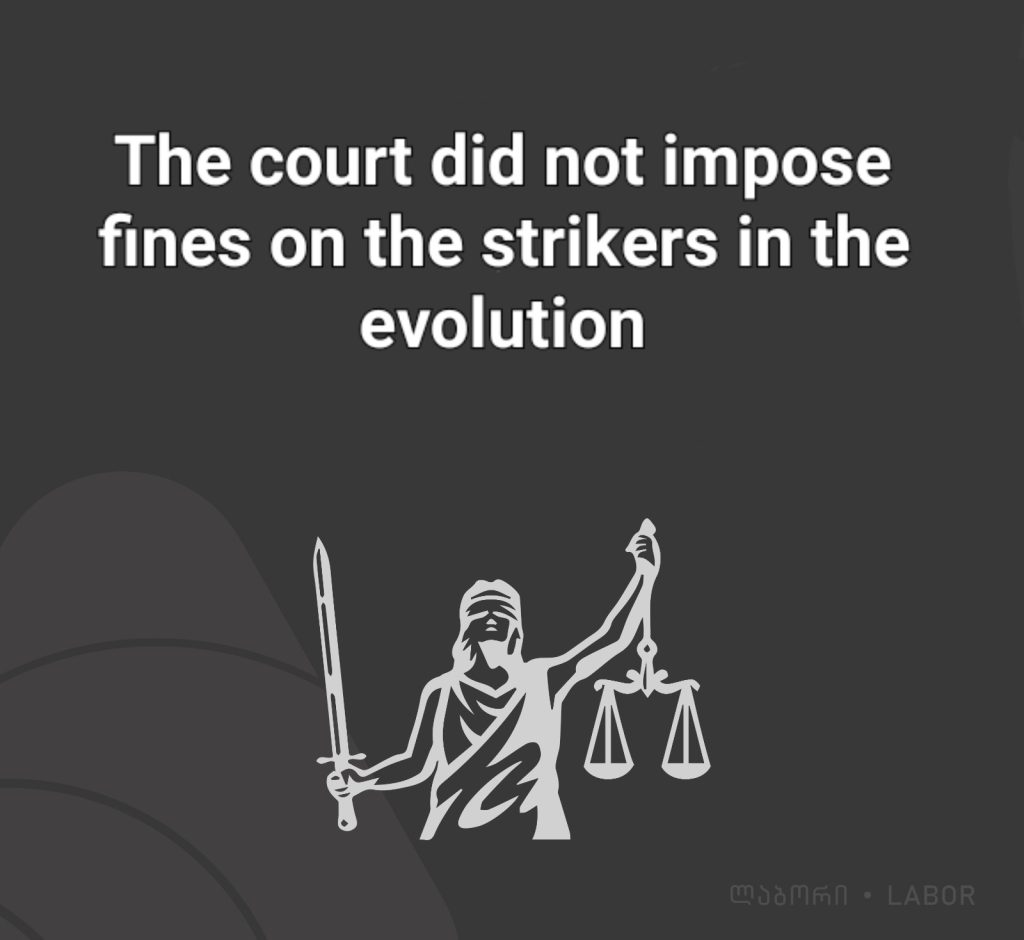The Court Issued Only a Verbal Warning to the Strikers at Evolution.
It is well known to the public that since July 12, 2024, a strike has been ongoing at Evolution, demanding improved working conditions and salary increases.

The employer’s disregard for Georgian labor laws, which require the continuation of conciliation procedures despite the strike, led to an escalation of protest forms. On September 21, several strikers threw eggs at the Evolution building. However, before doing so, they warned the masked and black-clad informal security representatives at the entrance to step aside to ensure no one was harmed. No damage was caused to the building. After the egg-throwing incident, Evolution’s security service filed a complaint with the police, alleging that the act disrupted work processes. However, during court testimony, they failed to substantiate this claim.

Labor’s lawyer presented evidence to the court regarding the strikers’ dire financial situation, including income statements reflecting unpaid wages during the strike, credit agreements, and other relevant documents. Taking this into account, the court refrained from imposing fines on the four strikers and instead issued only a verbal warning.
The interests of the strikers were represented by Labor lawyer Tamila Gabaidze .
We also clarify that recent disinformation suggesting that the strikers were fined large sums—an attempt by the company to intimidate them into ending the strike—is false. Additionally, claims that a verbal warning results in a criminal record and would hinder future employment are also untrue. A person is considered to have a criminal record only after being convicted in a criminal case and serving a sentence. None of the strikers have been found guilty, nor have any charges been filed against them.
As for the verbal warning, it results in the status of an administrative penalty for one year from the date of issuance and does not constitute an obstacle to employment. Moreover, criminal records are classified as special category personal data and are not publicly accessible. The status of an administratively penalized person is also not public information, and potential employers do not require such documentation when hiring.
